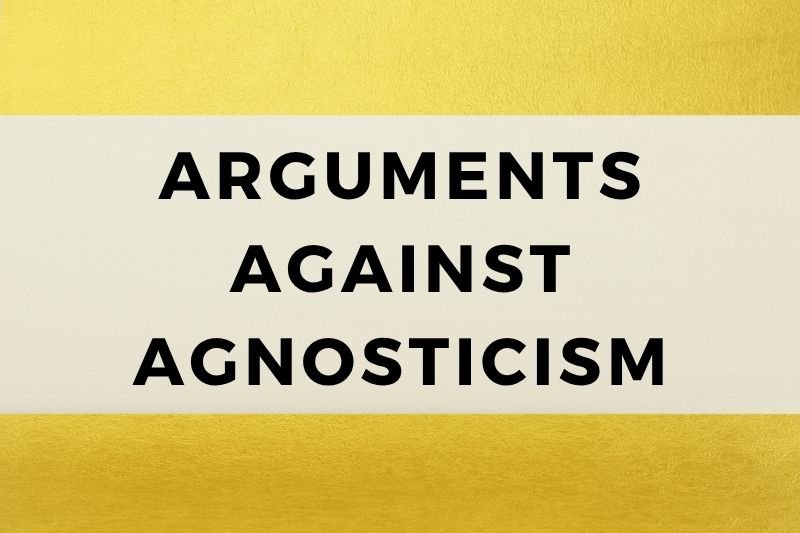
Can a person stand forever on the fence between belief and disbelief? Agnosticism claims this middle ground, insisting that the truth about God or the divine is unknowable. It promises intellectual honesty and freedom from dogma. Yet, this stance often raises more questions than it answers. Can uncertainty itself become a form of belief? Can withholding judgment truly lead to clarity?
Agnosticism presents itself as the safe, rational position, but critics argue that it may instead hide deep contradictions. As knowledge grows and moral choices demand commitment, the comfort of “not knowing” may no longer suffice.
Understanding the Agnostic Position
What Agnosticism Claims
Agnosticism claims that human reason cannot determine the truth about the existence of God or the divine. It is not disbelief but suspension of belief. The agnostic does not reject the idea of God; they simply maintain that the evidence is insufficient. This position rests on the idea that some questions lie beyond human comprehension. Yet, it also assumes that uncertainty is the most honest response to mystery. The key point is intellectual humility—acknowledging the limits of what can be known. However, critics argue that this humility can easily become indecision disguised as honesty.
Strong Agnosticism Vs Weak Agnosticism
Strong agnosticism asserts that the existence of God is permanently unknowable, while weak agnosticism claims it is currently unknown but possibly knowable. The difference lies in permanence versus possibility. Strong agnostics believe that divine truth is beyond all human reach, no matter how much knowledge advances. Weak agnostics, however, leave the door open for future discovery or evidence. This distinction matters because one is an absolute claim about knowledge itself, while the other is a temporary suspension of judgment. Critics say strong agnosticism contradicts itself by claiming certainty about uncertainty, while weak agnosticism risks sliding into passive disbelief.
Arguments Against Agnosticism
Argument #1: The Self-Contradiction of Permanent Uncertainty
Agnosticism contradicts itself when it claims that nothing about the divine can ever be known. To say that something is unknowable is to claim knowledge about its nature—that it cannot be known. This makes strong agnosticism self-defeating because it assumes certainty about the limits of certainty. It declares the human mind incapable of knowing divine truth while confidently asserting this as a truth. Critics point out that this logical tension undermines the credibility of agnosticism. If one cannot know, then one cannot know that one cannot know. The position collapses under its own reasoning.
Argument #2: The Practical Problem of Indecision
Agnosticism leaves individuals without a clear foundation for belief, action, or moral direction. In daily life, decisions often require taking a stance, even amid uncertainty. Refusing to commit can result in moral paralysis. Questions about purpose, ethics, and meaning do not wait for perfect evidence. While agnosticism values intellectual honesty, its neutrality can become impractical when life demands conviction. Critics argue that endless hesitation weakens personal responsibility. One cannot live indefinitely in suspended judgment without consequences. Choosing not to decide is, in effect, a decision that shapes one’s worldview and actions.
Argument #3: The Burden of Evidence Still Applies
Agnostics cannot fully avoid the responsibility of justifying their stance, since withholding belief is still a position. Claiming “I don’t know” may sound neutral, but it carries assumptions about what counts as valid evidence. Critics argue that by rejecting all current arguments for or against God, the agnostic implicitly applies a strict standard of proof that few ideas could ever meet. This standard often leads to selective skepticism, where metaphysical claims are dismissed while other unprovable beliefs are accepted. Agnosticism, then, cannot escape the rational burden it seeks to avoid—it must still defend its own doubt.
Argument #4: Agnosticism and the Problem of Meaning
Agnosticism risks leaving individuals without a coherent source of meaning or ultimate purpose. If one refuses to affirm or deny the existence of any higher reality, the foundation for meaning becomes uncertain. Morality, values, and hope lose a clear anchor. Critics argue that a worldview grounded solely in uncertainty cannot sustain purpose. While agnostics might find meaning in human experience or reason, these are often fragile against existential doubt. Without a guiding conviction, life’s deeper questions remain unresolved. The result can be quiet despair masked as intellectual restraint.
Argument #5: The Evolution of Knowledge
As human understanding advances, the core claim of agnosticism becomes less convincing. Science and philosophy continually expand the limits of what can be known. What was once “unknowable” often becomes explainable. Critics argue that agnosticism underestimates this progress by treating ignorance as permanent. While mystery still exists, history shows that persistent inquiry yields answers. Thus, declaring divine truth unknowable may simply reflect temporary limits, not absolute barriers. The growth of knowledge suggests that agnosticism’s central claim—our inability to know—shrinks with every discovery and may one day lose its relevance.
Closing Thoughts
Agnosticism offers the comfort of caution in a world filled with uncertainty, but it may also trap the mind in endless hesitation. Its appeal lies in its honesty about human limits, yet its weakness shows when those limits become excuses for inaction. Knowledge, meaning, and moral conviction all require some degree of commitment. As understanding deepens and evidence expands, the case for permanent uncertainty weakens. The challenge, then, is not to avoid belief but to seek it responsibly—to face the unknown with both humility and the courage to decide.
